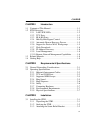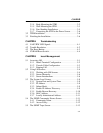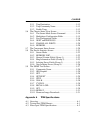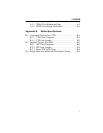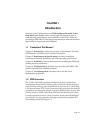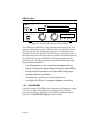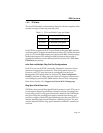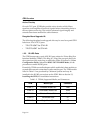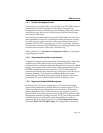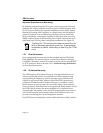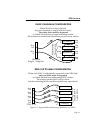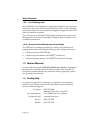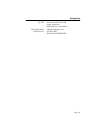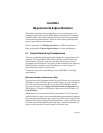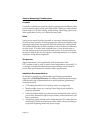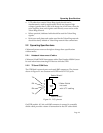
STHI Overview
Page 1-5
1.2.4 Hub-By-Hub Bypass Control
Unless otherwise configured by a user, all hubs in an STH/STHI stack are
interconnected to form a continuous Token Ring. Through Local
Management, however, each hub may be individually bypassed from the
continuous ring to form its own isolated ring which does not exchange
data with the other hubs.
If an STH is bypassed from the main ring, the STH module will not receive
data-dependent services such as statistical tracking and beacon recovery,
but other physical control functions such as port configuration remain
unaffected. If the STHI is bypassed, only its TCUs are actually bypassed
from the stack’s common ring: TPIM Ring ports and management systems
maintain their connection to the stack’s common ring.
Refer to Section 5.6.2,
Multiplexer Configuration Fields
, for instructions
regarding bypass control.
1.2.5 Automatic Beacon Recovery Process
To guard the network against operational interruptions due to beaconing
conditions, the STHI protects itself and its attached STH hubs with
Cabletron Systems’ advanced Automatic Beacon Recovery Process. ABRP
engages more quickly and is able to treat conditions beyond the scope of
the IEEE standard beacon recovery process. The STHI automatically
partitions problematic lobes from the ring, allowing the rest of the ring to
continue operating. The hub checks partitioned Ring In/Out ports
periodically and re-enables them automatically if they have recovered;
partitioned TCU ports remain disabled until re-enabled by a user.
1.2.6 Support for Passive MAU Workgroups
By default, each TCU port is configured to its STN (station) setting to
support lobe connections to stations. Whereas a station signals a TCU to
open its interface by providing phantom current down its lobe cable, a
passive Multi-Station Access Unit cannot provide phantom current. To
allow for MAU connections, the user may reconfigure TCU ports via Local
Management to function in Ring Out mode. A TCU port in Ring Out mode
looks for the presence of data bits, rather than phantom current, to
determine link status. Refer to Section 5.6.3,
Port Configuration Fields
,
Subsection
RING OUT ENABLE Mode
, for configuration instructions.



